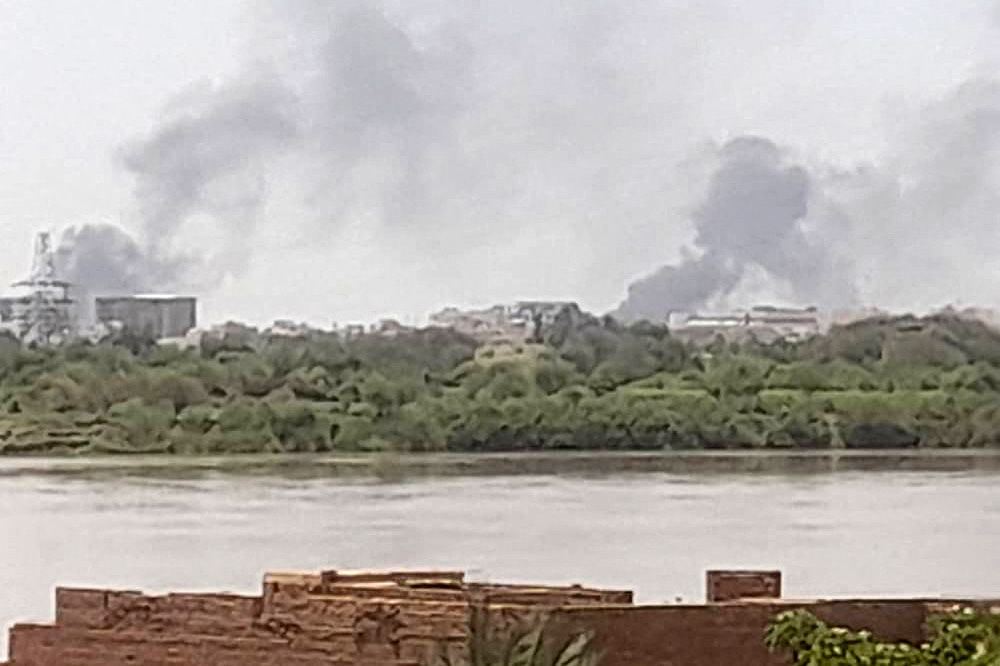Sudan’s Widening Conflict Risks Becoming Full-Scale Civil War, Experts Say
ADF STAFF
Less than four months after fighting erupted between Sudan’s two dominant generals, the country appears to be close to descending into a full-scale civil war, according to security experts.
“They’re trying to not just win but trying to eradicate the other in order to have complete control over the country and its resources,” analyst Kholood Khair, founding director of Confluence Advisory, a Khartoum think tank, recently told Al-Jazeera.
The violence began April 15 when the Rapid Support Forces (RSF) led by a general known as Hemedti attacked key installations in the capital city, including the military compound where Gen. Abdel Fattah al-Burhan lived in Khartoum. Al-Burhan is head of the Sudan Armed Forces (SAF) and has been the de facto leader of the country since the joint SAF-RSF coup that overthrew long-time dictator Omar al-Bashir in 2019.
Since April, fighting has spread to other parts of the country as local leaders declare their allegiance to one side or the other. Clashes have broken out between the army and the RSF in North Kordofan, South Kordofan and Blue Nile states. The leadership of South Darfur recently declared its loyalty to the RSF.
In Khartoum and neighboring Omdurman, the fighting left civilians without access to power and water. Banks and food markets are shuttered.
“We’re under a complete siege — no food, no medication, no nourishment. Nothing,” Khartoum resident Soha Abdulrahman told Al-Jazeera.
The SAF has attacked locations in Omdurman, Khartoum’s sister city across the Nile River, as it seeks to disrupt RSF supply lines coming in from Darfur and the northwest near the Libyan border.
In the Darfur region, the RSF has renewed attacks on non-Arab communities, echoing the genocide conducted there nearly 20 years ago by its predecessor, the Janjaweed.
RSF attacks drove hundreds of thousands of people from their homes, killed the governor of West Darfur and left communities such as West Darfur’s capital, El Geneina, in ruins. One mass grave discovered in West Darfur contained nearly 90 bodies, likely victims of the RSF.
“There is an utter disregard for humanitarian and human rights law that is dangerous and disturbing,” U.N. Secretary-General António Guterres said in a recent statement.
Both sides are closely matched in manpower. The SAF has heavy artillery and fighter jets, but the RSF has proven more agile and has claimed more territory in and around the capital. The RSF also has taken up positions in residential neighborhoods — in some cases forcing people from their homes — which makes it difficult for the SAF to drive them out.
Both sides called for — then violated — cease-fires, using the breaks to rearm and recruit new fighters.
“Neither side is ready to give tactical concessions when they think that they might lose ground on the battlefield or might forgo an opportunity for winning,” Alex de Waal, executive director of the World Peace Foundation, told Al-Jazeera.
Experts say al-Burhan and Hemedti are prepared for a lengthy fight for supremacy, even as their rivalry threatens to engulf the entire nation. Efforts to negotiate an end to the fighting have foundered as each side accuses potential peacemakers of bias toward their rival, according to analyst Michelle Gavin at the Council on Foreign Relations.
“Right now, it’s very clear that the antagonists in this conflict aren’t looking to stop. They’re still jockeying for military advantage,” Gavin recently told War on the Rocks. “There are no good guys when we talk about the antagonists in this conflict.”


Comments are closed.